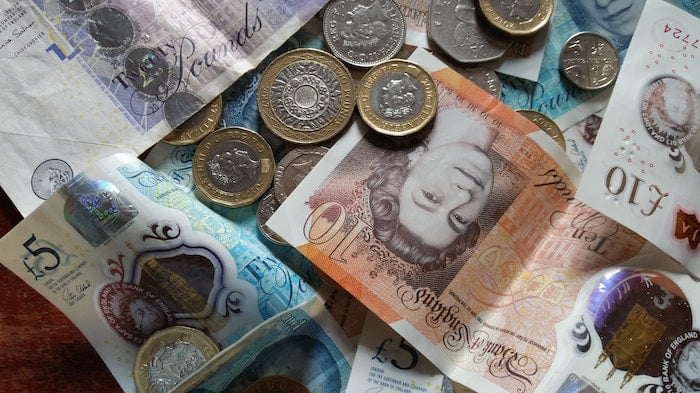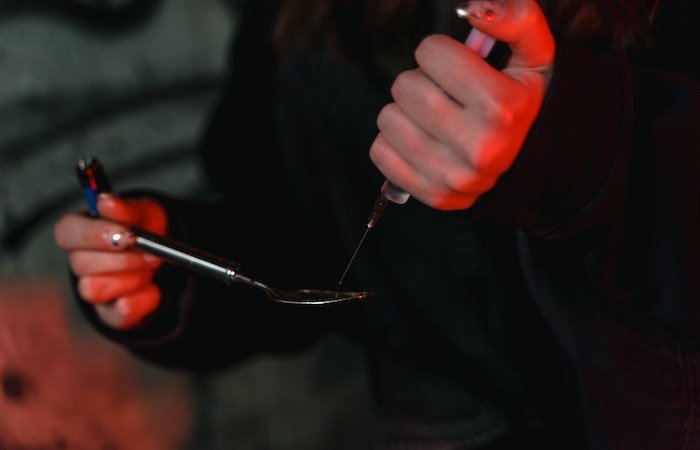Drug Rehab & Alcohol Rehab in Buckinghamshire & Near Buckinghamshire
Quick Links for drug rehab & alcohol rehab in Buckinghamshire and near Buckinghamshire
- How Can I Convince a Loved One to Access Drug Rehab & Alcohol Rehab in Buckinghamshire or near Buckinghamshire?
- Is Drug Rehab & Alcohol Rehab in Buckinghamshire or near Buckinghamshire Accessible Through the NHS?
- What are the Alternatives to Going to Drug Rehab & Alcohol Rehab in Buckinghamshire or near Buckinghamshire?
- Residential Drug & Alcohol Rehab Vs. Outpatient Rehab in Buckinghamshire & near Buckinghamshire – Which is Better?
- How Much Does Drug Rehab & Alcohol Rehab Cost in Buckinghamshire & near Buckinghamshire?
- How Long Does Drug Rehab & Alcohol Rehab Last in Buckinghamshire & near Buckinghamshire?
- Therapies Offered at Drug Rehab & Alcohol Rehab in Buckinghamshire & near Buckinghamshire
- What Happens After Drug Rehab & Alcohol Rehab in Buckinghamshire & near Buckinghamshire?
- Accessing Drug Rehab & Alcohol Rehab in Buckinghamshire & near Buckinghamshire Through Rehab Recovery Today
If you’ve drunk alcohol or consumed drugs for many years, you may not be open to the idea that you can no longer control your use and are in need of rehab help in Buckinghamshire.
You may reason that you haven’t got a problem after all, or that you can sort these problems out without professional rehab assistance.
However, over time your life will continue to spiral out of control until you hit rock bottom, at which time drug and alcohol rehab treatment in Buckinghamshire becomes much harder.
You may change your life for the better by contacting Rehab Recovery today for access to a drug rehab and alcohol rehab in Buckinghamshire or near Buckinghamshire.
Buckinghamshire is no exception to the disease of addiction [1] and the need for professional drug and alcohol rehab.
If you are in a cycle of alcohol or drug abuse, or concerned about the substance abuse of a loved one, we can provide free addiction advice and help with drug and alcohol rehab in Buckinghamshire.
We provide referrals to some of the best private drug and alcohol rehab clinics in Buckinghamshire and near Buckinghamshire.
Start your recovery journey in Buckinghamshire or near Buckinghamshire today by calling our expert team on 0800 088 66 86
Dual Diagnosis at Drug & Alcohol Rehab in Buckinghamshire and near Buckinghamshire

Two people holding hands at a drug rehab & alcohol rehab in Buckinghamshire or near Buckinghamshire
Drug and alcohol addiction is an all-consuming disease and living with it can result in serious physical and mental health issues, all of which can make rehab treatment in Buckinghamshire even more complex.
Most people who arrive at drug and alcohol rehab in Buckinghamshire for addiction treatment will have some other kind of co-occurring mental health problem, which has often been left undiagnosed.
Being under the care of top mental health professionals at drug & alcohol rehab in Buckinghamshire means that you can have these issues identified and properly treated.
When addiction and another mental health condition are both present at the same time, it is known in drug and alcohol rehab terms as a ‘dual diagnosis’.
- Depression
- Anxiety
- Schizophrenia
- Bipolar Disorder
- Borderline Personality Disorder
- Antisocial Personality Disorder
- Eating disorders
- Obsessive Compulsive Disorder (OCD)
- Post-Traumatic Stress Disorder (PTSD)
Choosing the right drug and alcohol rehab centre in Buckinghamshire will allow you to address both your addiction and your mental health support at the same time, giving you the best chance at effectively managing both in the future.
For more information about how drug and alcohol rehabs in Buckinghamshire can support your mental health, call us on 0800 088 66 86
How Can I Convince a Loved One to Receive Drug & Alcohol Rehab in Buckinghamshire or near Buckinghamshire?

Intervention in progress for drug rehab & alcohol rehab in Buckinghamshire
One of the most common obstacles to an addiction sufferer accessing drug and alcohol rehab or other addiction treatment is staying in denial about their condition and the damage that it is causing.
This is the purpose of drug and alcohol addiction interventions – to get through to the person and to make them realise the damage that their behaviours are causing to themselves and to others and to encourage them to seek help from a drug and alcohol rehab in Buckinghamshire.
Usually, this will be done by a ‘traditional’ intervention, where loved ones gather with the person and explain their thoughts clearly to them and present them with rehab and other treatment options available locally in Buckinghamshire.
This is best carried out with the assistance of a trained and qualified intervention counsellor, who can make sure that the conversation stays on track and that tempers do not fray too much, as well as advise on suitable rehab options.
Generally, a traditional intervention follows the 5-As series of planning points, [3] encouraging the interventionists to Ask, Advise, Assess, Assist, and Arrange.
One alternative to the traditional intervention method is something called a CRAFT (Community Reinforcement And Family Training) intervention, [4] which asks the loved ones to use positive reinforcement over a longer period of time, rewarding the addicted person for making positive steps in their behaviour and gradually guiding them to see the benefits of drug and alcohol rehab treatment in Buckinghamshire.
Whichever method of intervention you choose to go for, we at Rehab Recovery can provide free expert advice on how to facilitate it and link you with professional intervention services in Buckinghamshire.
For guidance conducting an intervention in reparation for rehab in Buckinghamshire, call us on 0800 088 66 86
Is Drug & Alcohol Rehab in Buckinghamshire or near Buckinghamshire Accessible Through the NHS?

Professionally supported drug and alcohol rehab in Buckinghamshire is one of the best ways to recover from addiction, for a variety of reasons.
At Rehab Recovery, we only offer referrals to private drug rehab and alcohol rehab clinics in Buckinghamshire – in other words, drug and alcohol rehab clinics that charge patients directly for their treatment.
There are a great number of rehab clinics that offer placements through the NHS and other public services [5] – in other words, there is no financial cost to the patient for their drug or alcohol rehab treatment in Buckinghamshire.
Although the lack of expense would seem to make public-funded drug and alcohol rehab more appealing, there are a number of positives and negatives to consider when choosing which way to go.
The main plus point of public rehab in Buckinghamshire is that you will not have to pay for treatment, or if you do, the cost will be minimal.
NHS Drug Rehab & Alcohol Rehab in Buckinghamshire and near Buckinghamshire
The disadvantages to public-funded drug and alcohol rehab in Buckinghamshire are that you will not get as much choice over the kind of treatment you get, and you may have to wait on a waiting list for several months before treatment starts.
It may also be the case that the standard of care and accommodation would not be as high as it would be if you were to go to private drug and alcohol rehab in Buckinghamshire, although this will vary.
Private Drug Rehab & Alcohol Rehab in Buckinghamshire and near Buckinghamshire
The main advantage of choosing a private drug and alcohol rehab in Buckinghamshire is that you can start your treatment right away, without the need to wait on any kind of list.
As soon as you are ready to proceed, we can get you into a rehab clinic within a very short timeframe.
Private drug and alcohol rehab clinics in Buckinghamshire or near Buckinghamshire also tend to have a high standard of accommodation and treatment across the board, offering more comfortable and sometimes even luxury accommodations and environs.
If you are thinking about pursuing public-funded drug and alcohol rehab care, we can provide free advice about how to go about this as well as answer any other questions that you might have regarding drug and alcohol rehab treatment in Buckinghamshire.
Get help accessing drug & alcohol rehab in Buckinghamshire by talking to our experts on 0800 088 66 86
What are the Alternatives to Going to Drug & Alcohol Rehab in Buckinghamshire or near Buckinghamshire?

Two women talking one-to-one at a drug rehab & alcohol rehab in Buckinghamshire and near Buckinghamshire
Below is a list of other organisations [6] that offer free support and advice for drug and alcohol rehab treatment in and around Buckinghamshire:
1. Compass Young People Drugs & Alcohol Service, near Buckinghamshire
Address: 138A Queensway, Bletchley, Milton Keynes MK2 2RS
Telephone: 01908 379 673
2. Alcohol & Drug Addiction Support in Buckinghamshire
Address: 33-37 Farthing Grove, Netherfield, Milton Keynes MK6 4JH
Telephone: 01908 250 730
3. Buckinghamshire Turning Point – Banbury
Address: Banbury Health Centre, 58 Bridge St, Banbury OX16 5QD
Telephone: 01295 225 544
Website: http://wellbeing.turning-point.co.uk/oxfordshire/hubs/banbury-hub/
- Alcoholics Anonymous Buckinghamshire [7]
- Narcotics Anonymous Buckinghamshire [8]
- Cocaine Anonymous Buckinghamshire [9]
- SMART (Self Management And Recovery Training) Buckinghamshire [10]
- Al-Anon Family Meetings Buckinghamshire [11]
- Alateen Buckinghamshire [12]
- Home Detox (when detox at a residential drug & alcohol rehab is not necessary)
- Outpatient drug & alcohol rehab services
You can also reach out to a number of addiction and mental health helplines, including Mind UK, YoungMinds, Rethink Mental Illness, Samaritans and Papyrus.
Drug and alcohol rehabs and other addiction organisations are led by guidelines set by the American Society of Addiction Medicine (ASAM), the National Institute for Health and Care Excellence (NICE) and the National Association for Children of Alcoholics, so you can be confident that you are in safe hands at rehab and will benefit from thorough person-centred care.
For guidance choosing between public and private rehab in Buckinghamshire, call our team on 0800 088 66 86
Residential Rehab VS Outpatient Drug & Alcohol Rehab in Buckinghamshire – Which is Better?

Group hug at a drug rehab & alcohol rehab in Buckinghamshire or near Buckinghamshire
Attending a drug rehab and alcohol rehab in Buckinghamshire as an outpatient means that you could potentially save a lot of money on treatment.
However, it does also mean that you increase your relapse risk factor, and there are certain people for whom outpatient drug and alcohol rehab in Buckinghamshire is simply not a viable or safe option.
This includes:
- Those with mental health problems that mean they would mean they struggle to complete a home drug or alcohol detox in Buckinghamshire or near Buckinghamshire.
- Those who have previously failed to stay sober after attempts at outpatient drug and alcohol rehab treatment and/or home detox in Buckinghamshire or near Buckinghamshire.
- Those who are likely to commit acts of violence when drunk and/or high and would need additional security during recovery in Buckinghamshire.
- Those who have suffered from delirium tremens, alcoholic seizures or other severe withdrawal symptoms and therefore need medical supervision and support from a drug and alcohol rehab in Buckinghamshire.
- Those suffering from the medical condition Wernicke’s Encephalopathy, which requires specialised alcohol rehab support from a rehab in Buckinghamshire.
You would also need to be within travelling distance of the drug and alcohol rehab clinic in Buckinghamshire to make outpatient rehab work, as well as have a secure and stable home life to return to each day.
As part of your telephone consultation, we can discuss whether outpatient drug and alcohol rehab in Buckinghamshire is something that you would like to pursue and, if so, whether you would be eligible.
Start your recovery journey at rehab in Buckinghamshire today – give our team a call on 0800 088 66 86
How Much Does Drug & Alcohol Rehab Cost in Buckinghamshire or near Buckinghamshire?

The total cost of your drug rehab or alcohol rehab treatment in Buckinghamshire will be different depending on the type of rehab treatment that you choose, as well as your accommodation choices.
For example, a single room to yourself at a drug and alcohol rehab in Buckinghamshire would likely cost between £8,000-£12,000 for a 28-day rehab stay, or between £3,000-6,000 for a 10-day inpatient detox procedure.
If you were to stay in a multiple-occupancy room, this cost would be reduced to around £6,000 for a 28-day drug and alcohol rehab stay, or £2,000-£4,000 for a detox in Buckinghamshire.
If you have private health insurance, you may be surprised to learn that you can often claim for a stay at drug and alcohol rehab in Buckinghamshire.
Not every policy will offer this, but it’s worth reading through the terms and conditions carefully to see what you are entitled to regarding drug and alcohol rehab treatment.
These prices will vary depending on the location in Buckinghamshire and the specific drug and alcohol rehab clinic, as with any other private service. The prices above are just a rough guide on what to expect.
Start your recovery journey at a rehab in Buckinghamshire today by calling our expert team on 0800 088 66 86
How Long Does Alcohol & Drug Rehab in Buckinghamshire and near Buckinghamshire Last?

A clock on a wall at a drug rehab & alcohol rehab in Buckinghamshire
Whilst addiction recovery as a whole can often take anywhere from six months to five years, [13] drug and alcohol rehab treatment is typically far shorter.
For the vast majority of people who attend drug and alcohol rehab in Buckinghamshire and across the UK, it will last about 28 days.
This includes everything from beginning the drug and alcohol rehab admission process, to undergoing detox to fully completing a course of intensive drug or alcohol rehab therapy.
There could be some cases where drug and alcohol rehab is slightly longer, perhaps due to detox taking longer than average, which would then have a knock-on effect on the remaining rehab treatment schedule.
In some extreme cases, those with severe addiction problems can end up being in drug rehab and alcohol rehab in Buckinghamshire for up to 90 days. This is rare, however, and most people complete drug and alcohol rehab treatment in less than a month.
For a more accurate estimation of how long your treatment in rehab will last, call our team on 0800 088 66 86
What is a Medically Assisted Drug or Alcohol Detox at Rehab in Buckinghamshire and near Buckinghamshire?

Individual therapy for alcoholism at a drug rehab & alcohol rehab in Buckinghamshire
If you are suffering from a dependence on a physically addictive substance (alcohol, heroin, benzodiazepines, etc.), then you cannot begin to recover at drug and alcohol rehab without first detoxing from that substance.
This usually involves slowly tapering off your substance use under controlled conditions at a drug and alcohol rehab in Buckinghamshire or near Buckinghamshire, with professional medical supervision at all times.
Depending on the type of substance you are addicted to and how long you have been using it, your personalised detox programme will usually last for 7-10 days and will allow you to keep withdrawal symptoms to a minimum during your stay at a drug and alcohol rehab in Buckinghamshire.
There are several factors that can determine the length of a detox programme at drug rehab and alcohol rehab in Buckinghamshire – namely how long you’ve been drinking or taking drugs for, the extent of your drug or alcohol use, and whether you have received home or rehab detox treatment in the past.
Once you have gone through the detox process, the physical aspect of your addiction will be stabilised and the psychological stage of drug and alcohol rehab recovery can begin.
While you will likely still experience cravings and impulses to use drugs or alcohol, your body will no longer be physically dependent on these substances.
You are now ready to take the next steps at rehab to securing your addiction recovery.
This will usually involve some form of addiction counselling and in-depth drug and alcohol rehab therapy.
This may involve group therapy, cognitive behavioural therapy, family therapy, alternative therapies or a combination of multiple drug and alcohol rehab treatments to give you the best chance of making a full and lasting recovery.
Cocaine Rehab in Buckinghamshire and near Buckinghamshire

Cocaine possession is illegal in the United Kingdom, and punishable by up to seven years in prison. Despite this, cocaine use remains widespread in the country and is a major factor in drug & alcohol rehab treatment.
Cocaine use can make people more aggressive, obnoxious and violent. It is also an incredibly addictive substance and can cause a wide range of physical damage to the body, further complicating cocaine rehab treatment.
If you are struggling with cocaine addiction the best way to get help is through treatment at drug & alcohol rehab centre in Buckinghamshire.
Cocaine does not require a medical detox, but it is best to be under the care of rehab clinicians as you go through withdrawal, as they will be able to monitor any physical and psychological withdrawal symptoms.
Over the course of your drug and alcohol rehab stay you will be able to get intensive help and address the underlying issues that may have caused you to use cocaine in the first place, helping you to stay sober after drug and alcohol rehab.
To start beating your cocaine addiction with the help of a rehab in Buckinghamshire, call us on 0800 088 66 86
Heroin Rehab in Buckinghamshire and near Buckinghamshire

Heroin addiction and abuse are some of the most dire public health concerns in the UK and certainly one of its most serious addiction and rehab issues.
Although using the drug is heavily stigmatised, the extent of the heroin abuse epidemic is much more severe than most people think [14] and places a huge strain on nationwide drug and alcohol rehab resources.
Heroin withdrawal symptoms can be horrendous and are always potentially dangerous, which is why it is necessary to have a proper heroin detox at a dedicated medical centre or residential drug and alcohol rehab clinic.
This means that you can be properly monitored by rehab staff for your own safety and wellbeing and that any discomfort can be managed, usually with specialised medications.
Once you have got through the detox phase, you can spend your remaining time at heroin rehab in Buckinghamshire working on your mental health and wellness, with the help of a team of qualified health professionals and rehab staff on-site.
Those professionals will also help you to put together a solid relapse prevention plan in order to manage your cravings and maintain your well-being once you leave the drug and alcohol rehab clinic.
To start beating your heroin addiction with the help of a rehab in Buckinghamshire, call us on 0800 088 66 86
Cannabis Rehab in Buckinghamshire and near Buckinghamshire

Group therapy for alcohol addiction at a drug rehab & alcohol rehab in Buckinghamshire or near Buckinghamshire
Too many people fall for the myth that cannabis is harmless, or that it is not possible to get addicted to it.
Neither is true, and cannabis causes significant problems for a lot of people across the UK, in many cases requiring professional cannabis rehab to address.
Cannabis cannot cause an overdose by itself, but that does not mean that it doesn’t present a whole range of potential health problems and instil a deep psychological addiction needing professional support from a drug and alcohol rehab to shift.
Long-term cannabis use is known to contribute to depression, anxiety, memory loss and a host of other mental health problems that can complicate rehab treatment.
It can also cause the user to become socially detached and that social isolation can make their mental health issues and cannabis addiction even worse.
If you have developed a cannabis problem, we can help you find treatment at a suitable drug and alcohol rehab in Buckinghamshire.
To start beating your cannabis addiction with the help of a rehab in Buckinghamshire, call us on 0800 088 66 86
Treating Alcohol Addiction at Alcohol Rehab in Buckinghamshire and near Buckinghamshire

Teenager stressed during alcohol treatment at an alcohol rehab in Buckinghamshire or near Buckinghamshire
Alcohol addiction is a disease that can make it extremely difficult for someone to stop drinking without drug and alcohol rehab help, even if they want to.
They are unable to control their behaviour around alcohol and will continue to drink despite negative consequences, making their addiction worse and rehab treatment all the more necessary.
Someone with an alcohol addiction may be physically addicted and psychologically addicted, demanding extensive rehab treatment to address both.
Not everyone who drinks alcohol will experience addiction and need alcohol rehab to beat it, but it can be surprisingly easy to drink over the recommended limits on a regular basis and potentially experience issues in the future.
20,970 people died due to alcohol-related causes [15] in England in 2021, with 948,312 alcohol-related hospital admissions during the same time period, showing just how intense and dangerous the threat of this disease is and how much timely rehab support is needed.
Choosing to recover from alcohol addiction at an inpatient drug rehab and alcohol rehab in Buckinghamshire can greatly improve your chances of success.
Addiction specialists will work to figure out your specific treatment needs and deliver you a plan designed to help you with the best alcohol rehab treatments for your alcohol addiction. [16]
Alcohol rehab will begin with an alcohol detox supported by the use of medications like Librium, helping to keep the worst aspects of alcohol withdrawal syndrome at bay, before moving on to extensive psychotherapy programmes to break the mental aspect of addiction.
All of this allows the alcohol rehab patient in Buckinghamshire to heal both in body and mind, giving them the best chance to leave alcohol behind for good once rehab treatment comes to a close.
Overcome alcohol addiction at a drug & alcohol rehab in Buckinghamshire by calling us on 0800 088 66 86
Therapies Offered at Drug & Alcohol Rehab in Buckinghamshire and near Buckinghamshire

Therapy session for alcohol addiction at an alcohol rehab in Buckinghamshire or near Buckinghamshire
Drug and alcohol addiction is not a simple condition to treat, as there are a number of different factors and considerations one must bear in mind when creating a drug and alcohol rehab treatment plan.
This is why your therapy programme at drug & alcohol rehab in Buckinghamshire will be diverse and offer a wide range of therapies and treatments.
- Cognitive Behavioural Therapy (CBT)
- Dialectical Behavioural Therapy (DBT)
- Motivational Interviewing (MI)
- Motivational Enhancement Therapy (MET)
- Twelve-Step Facilitation Therapy (TSF)
- Individual Therapy
- Group Therapy
- Family Therapy
- Brief Interventions
- Co-Dependency Treatment
- Holistic Therapies (yoga, music therapy, art therapy, mindfulness, meditation, drama therapy, etc.)
To learn more about the specific treatments available at rehab in Buckinghamshire, call our team on 0800 088 66 86
What Happens After Drug Rehab & Alcohol Rehab in Buckinghamshire?

Support group for alcohol addiction at an alcohol rehab in Buckinghamshire or near Buckinghamshire
One of the most important parts of drug and alcohol rehab treatment is making sure that you are as prepared as possible to go back out into the world once your time in rehab has concluded.
This is why staff at the drug and alcohol rehab clinic you choose will help you to put together a relapse prevention plan as one of the final stages of treatment.
This plan will involve reassessing the people who you socialise with, the places you spend time and the other factors in your day-to-day life that may risk triggering your addiction.
It will also include information on what to do if relapse should occur to help keep damage limited and get you back on the path to drug and alcohol recovery as soon as possible.
Relapse is sadly not uncommon even after drug and alcohol rehab treatment, but it should not be seen as a complete failure – rather, it is simply a bump in the road to recovery.
Relapse prevention is the cornerstone of a wider aftercare programme designed to help maintain and grow the progress a patient has made at drug and alcohol rehab.
It will also likely involve the use of several formal treatments, including further outpatient therapy from the rehab clinic itself, or the encouragement to attend support group meetings like Alcoholics Anonymous and SMART Recovery.
One study found that 75% of people [18]who engaged with aftercare services were able to remain abstinent after drug and alcohol rehab has finished.
To learn more about avoiding relapse and engaging with aftercare after attending rehab in Buckinghamshire, call us today on 0800 088 66 86
Access Drug & Alcohol Rehab in Buckinghamshire Through Rehab Recovery Today

Man speaking on a phone about alcohol treatment at a drug rehab & alcohol rehab in Buckinghamshire or near Buckinghamshire
To begin tackling your addiction today, contact Rehab Recovery on 0800 088 66 86 without delay.
Putting off seeking help from a drug rehab and alcohol rehab is one way to ensure you lose your battle against addiction
All drug and alcohol rehabs must be registered and audited by the Care Quality Commission (CQC). [19]
When you contact us, you will benefit from our vast knowledge and experience when it comes to rehabilitation and recovery.
With the right drug and alcohol rehab support behind you, every addiction can be overcome.
We offer treatment across Buckinghamshire, including in Buckingham, High Wycombe, Slough, Milton Keynes, Aylesbury, Banbury, Bletchley, Chesham Marlow and many more.
References for Drug Rehab & Alcohol Rehab in Buckinghamshire and Near Buckinghamshire
[4] https://pmc.ncbi.nlm.nih.gov/articles/PMC4394369/
[5] https://www.nhs.uk/live-well/addiction-support/drug-addiction-getting-help/
[6] https://www.buckshealthcare.nhs.uk/
[7] https://www.alcoholics-anonymous.org.uk/find-a-meeting/
[8] https://meetings.ukna.org/meeting/search
[9] https://meetings.cocaineanonymous.org.uk/meetings/
[10] https://uk.meetings.smartrecovery.org/meetings/?location=Buckinghamshire&coordinates=50
[11] https://al-anonuk.org.uk/getting-help/find-a-meeting/?search=2&county=Buckinghamshire
[12] https://al-anonuk.org.uk/alateen/
[13] https://www.racnj.com/the-five-stages-of-addiction-recovery/
[17] https://www.ncbi.nlm.nih.gov/books/NBK385382/


